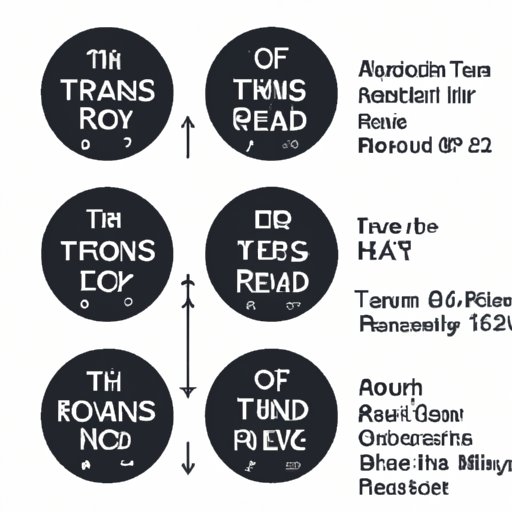Introduction
For many taxpayers, getting an IRS refund is an exciting prospect. But how long does it take to get a refund from the IRS?
The answer depends on several factors, including the accuracy of your tax return, the type of refund you requested, and any potential fraudulent activity. This article will provide an overview of the entire IRS refund process and offer tips for maximizing your chances of a quick refund.
A Step-by-Step Guide to Tracking Your IRS Refund
The first step in getting your IRS refund is to track it. You can do this by using the IRS “Where’s My Refund?” tool. This tool allows you to check the status of your refund in real-time. To use this tool, you will need to provide your Social Security number or Individual Taxpayer Identification Number, your filing status, and the exact amount of your refund.
You can also call the IRS hotline at 1-800-829-1040 to inquire about the status of your refund. However, this option may take longer than the online tool as the IRS hotline is often busy with calls.

How to Prepare for the Long Wait for an IRS Refund
While there are no guarantees when it comes to IRS refunds, there are some steps you can take to ensure that your refund arrives as quickly as possible. The most important thing you can do is plan ahead. Make sure you have all of your paperwork organized and ready to go before filing your taxes. This will help ensure that you don’t miss any important deadlines.
It is also important to understand the timeline for refunds. The IRS typically issues refunds within 21 days after they receive your return. However, this timeline can vary depending on mistakes in filing, delays in processing, or fraudulent activity. It is important to set realistic expectations and be prepared for the possibility that your refund may take longer than expected.
Tips for Maximizing Your Chances of a Quick IRS Refund
In addition to planning ahead and understanding the timeline, there are other things you can do to maximize your chances of a quick refund. First, make sure that your tax returns are accurate. Any mistakes on your return can delay the processing of your refund. Double-check your return for accuracy before submitting it.
You should also check your bank account regularly. Most refunds are deposited directly into your bank account, so it is important to keep an eye out for any deposits. If you don’t see a deposit within the expected timeframe, contact the IRS to find out why.
Finally, if you believe there is an issue with your refund, don’t hesitate to contact the IRS. They can provide more information about the status of your refund and help you resolve any issues.

Common Reasons Why IRS Refunds Take So Long
There are several common reasons why IRS refunds take so long. One reason is mistakes in filing. If your tax return contains errors or omissions, it could delay the processing of your refund.
Delays in processing can also cause refunds to take longer than expected. The IRS receives millions of tax returns each year, and they must process each one manually. This can lead to delays in the processing of refunds.
Finally, fraudulent activity can cause refunds to take longer than expected. The IRS takes extra precautions to protect taxpayers against fraud, which can result in delays in the processing of refunds.

Understanding the IRS Refund Cycle and Timeline
The IRS refund cycle is divided into three phases: acceptance, processing, and issuance. During the acceptance phase, the IRS reviews your tax return for accuracy. If everything looks good, your return will move on to the processing phase. During this phase, the IRS verifies your identity and checks for any suspicious activity. Once this is complete, your refund will move on to the issuance phase. During this phase, the IRS sends your refund to your bank account or mails you a check.
The timeframes for refunds vary depending on the type of refund you requested. Direct deposits usually arrive within 21 days, while paper checks can take up to six weeks. If you requested an installment agreement, it can take up to six months for your refund to arrive.
Conclusion
Getting an IRS refund can be an exciting prospect, but it can also be a long wait. Understanding the entire IRS refund process and taking steps to maximize your chances of a quick refund can help you get your money faster. Make sure you file accurately, check your bank account regularly, and contact the IRS if there is an issue.
(Note: Is this article not meeting your expectations? Do you have knowledge or insights to share? Unlock new opportunities and expand your reach by joining our authors team. Click Registration to join us and share your expertise with our readers.)
